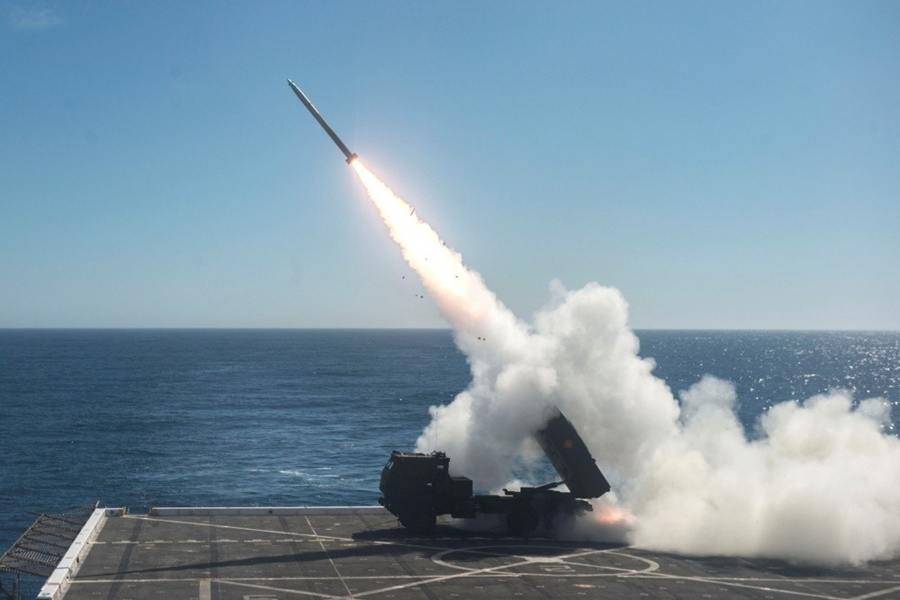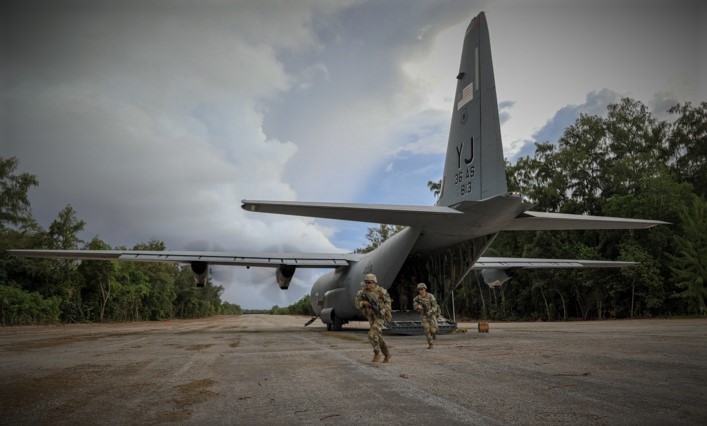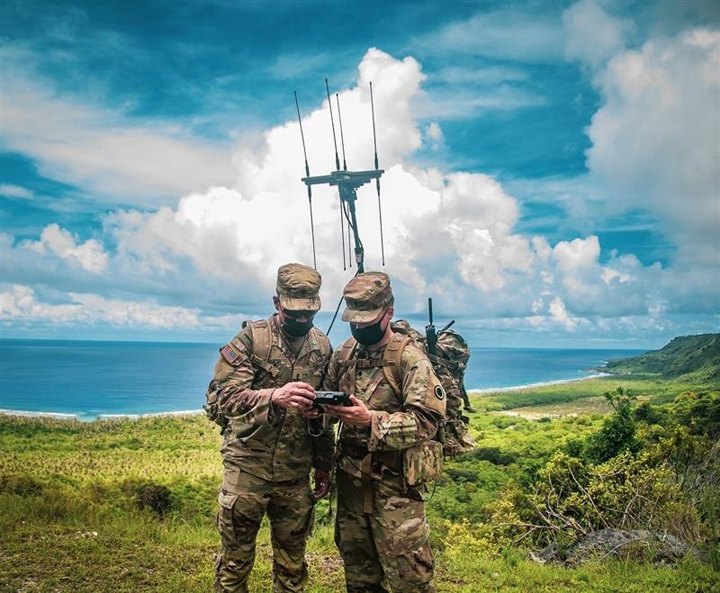The Army’s first Multi-Domain Task Force is charting an unknown path to help reshape how the total force fights and wins on future battlefields, its commander said Jan. 27.
Initiated in March 2017, the MDTF pilot program focused on defeating an enemy’s anti-access/area denial, or A2/AD, capabilities in the Indo-Pacific region. Since then, through exercises and assessments, the program ensured the task force was able to deploy and operate in the region before it officially activated in the fall.
“There is little doctrine for [MDTFs],” said Brig. Gen. Jim Isenhower, the commander, adding his trailblazing unit will be a centerpiece of Army modernization.
As a centerpiece for the future Army, MDTFs are “new, networked, maneuver theater assets, focused on adversary A2/AD networks,” Isenhower said. Their capabilities also provide deterrence options for combatant commanders.
“The Army has empowered us, and asked us to figure out how we’re going to maneuver effectively in all domains, which will characterize how we fight in the future,” he added.
Down the road, the MDTF, which is based at Joint Base Lewis-McChord, Washington, won’t be alone. Later this year, a second MDTF is being planned to stand up in Europe. A third task force may also stand up and serve the Indo-Pacific next year.
The first MDTF originally had a field artillery brigade as its core that merged with an Intelligence, Information, Cyber, Electronic Warfare and Space, or I2CEWS, element.
“Through distributed operations and with access to requisite authorities, MDTFs are advanced headquarters that synchronize kinetic and non-kinetic capabilities in support of strategic objectives,” Isenhower said.
“We face increased physical and virtual standoff through layered and integrated networks, where adversaries leverage all instruments of national power to blur the lines between competition and conflict, altering international norms to the detriment of the international community,” he said.

Great power competition
For the MDTFs, the plan ahead is to evolve and outpace the speed of any persistent, great power competitors like China and Russia, said an officer assigned to the task force.
“Great power competition requires an Army that is capable of complete integration across the joint force to compete with our adversaries,” he said.
From a joint warfare perspective, this is where the MDTF comes in. “Our exercises are joint, our plans are joint, and we incorporate input from across the joint services at every turn,” he said.
That foundation enables the total force to use a broad range of multidisciplinary capabilities. It also gives joint forces the freedom of action to fit the needs of each service, he said.
Preparing Soldiers
Like with other Army organizations, it’s the individuals selected who make the task force exceptional, according to one of its senior enlisted members.
“Within our ranks are highly-trained Soldiers with specialized skill sets, [and are] technologically astute, creative thinkers, who are looking at new ways to address complex problem sets,” they said. “The diversity of our formation fosters an environment of critical thinking, and the Soldiers who comprise our task force are leaders at the front of their career fields.”
The MDTF Soldiers reflect the nation, he added, and are “the best at coming together to leverage technology and joint resources to meet the imperatives of our national defense strategy.”
After qualifying for the task force, they said, each member represents the best of each priority they specialize in. “That’s one of the most exciting parts of this — the Soldiers who comprise our organization,” he said.
Whether in exercise or garrison, the MDTF members do things others simply cannot, they said. Specifically, the experience of working in joint exercises, or becoming fluent in the synchronization and planning efforts typically linked to the joint environment.
“Every member on the MDTF values their opportunity to contribute to the Army’s — and the joint force’s — efforts to develop these new concepts, like [multi-domain operations] and all-domain warfare,” Isenhower said.

Joint problems need joint solutions
But the task force will only be as successful as the joint partnerships they maintain, they said. Those partnerships have come with their share of eye-openers.
“Our proximity to joint partners [has given us] a few lessons learned,” said a senior officer assigned to the task force. “We tend to get these large gains out of exercises that we’ve been on in the Pacific, but one of those lessons we were coming away with is that we need a more persistent training environment.”
On any given week, the MDTF may partner alongside a Carrier Strike Group from the U.S. Navy or fire planners from the U.S. Air Force.
These are prime examples of how the task force is a joint-enabler, and “without those joint partners, we’d become an Army solution [for] only Army problems,” the officer said. Instead, “we’re looking to work [with] joint partners toward joint solutions.”
“Many times, joint solutions are inhibited by closed architectures within respective forces, Isenhower said.
The task force “found opportunities to accelerate joint interoperability by just getting the right people in the room to talk to each other and figure out how to break down both literal and figurative firewalls that might inhibit rapid communication,” he said.
Although there is still work to do, the task force is on the right track, he said. MDTFs will simultaneously integrate joint partners and emerging technologies to inform the Army’s transformation into a faster, more dynamic force.
“This is a unique opportunity, and the MDTF — Soldiers and family members alike — feel privileged to be a part of it and don’t take for granted the responsibility and the privilege the Army’s given us to chart this path forward,” Isenhower said.












